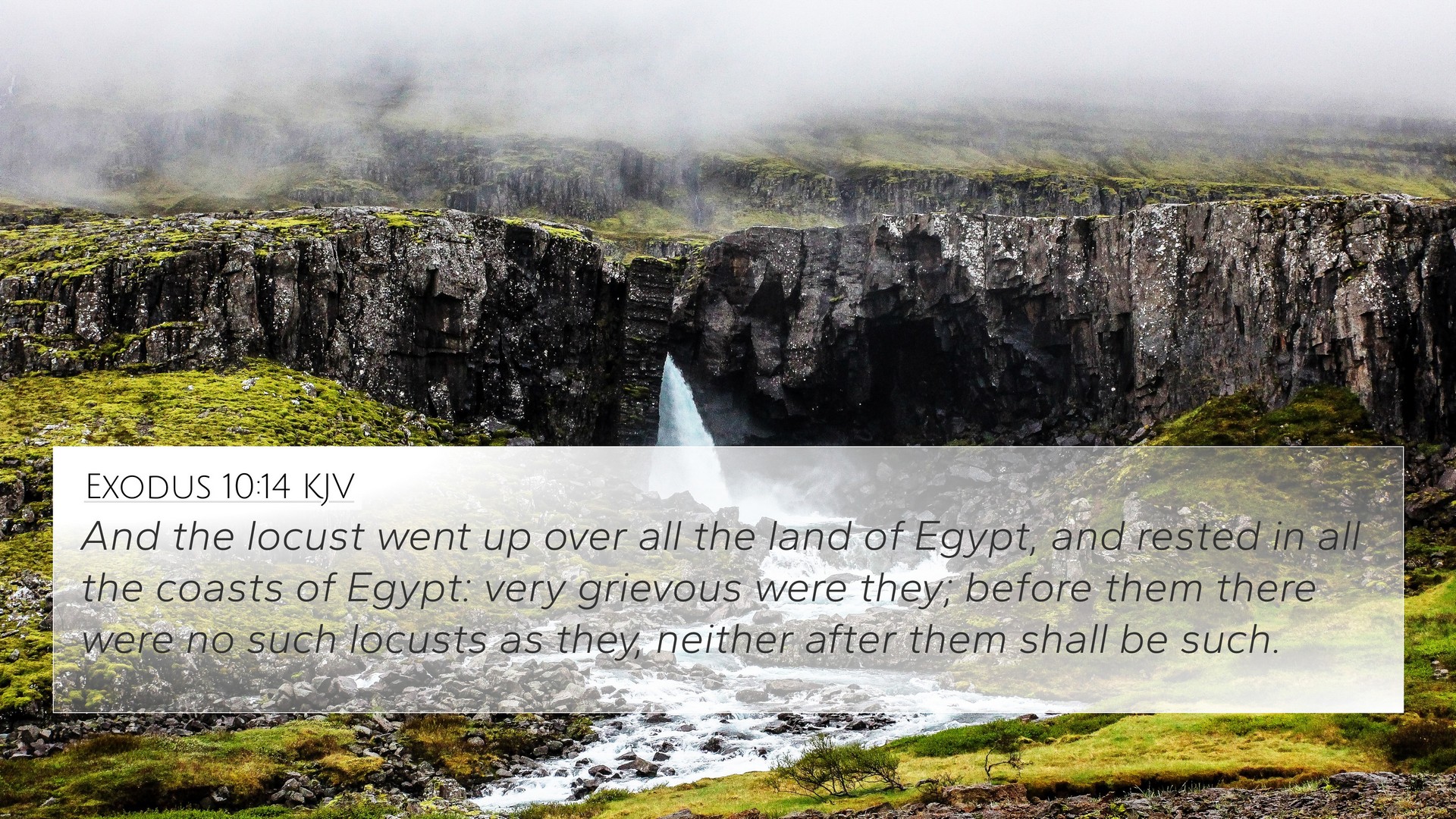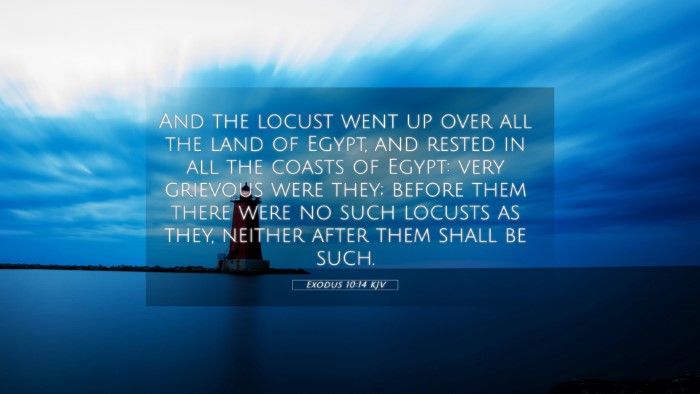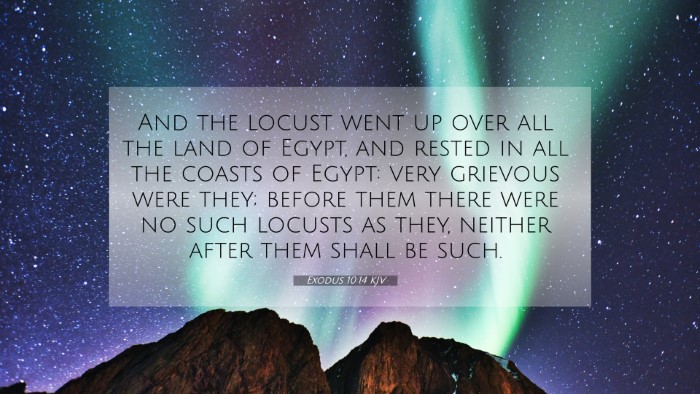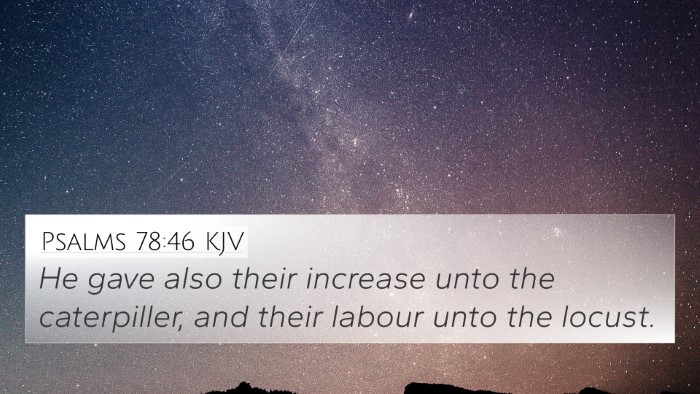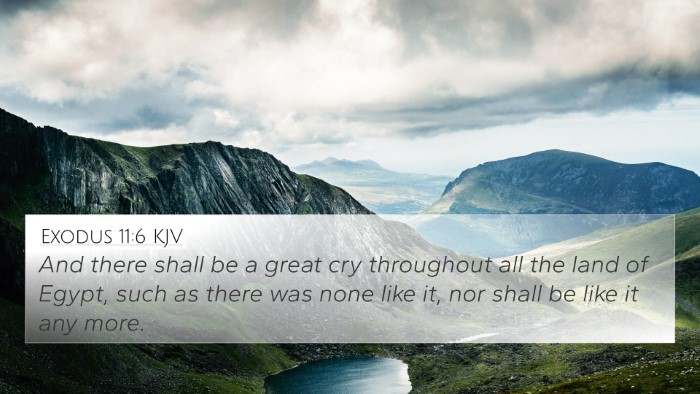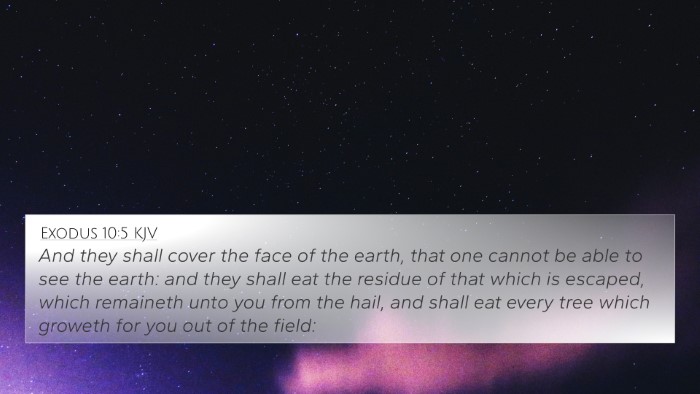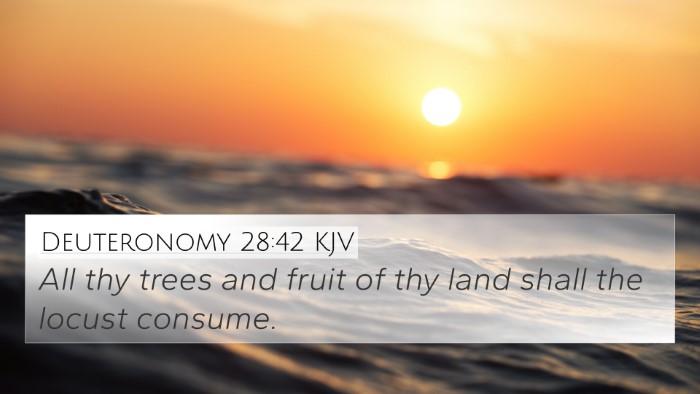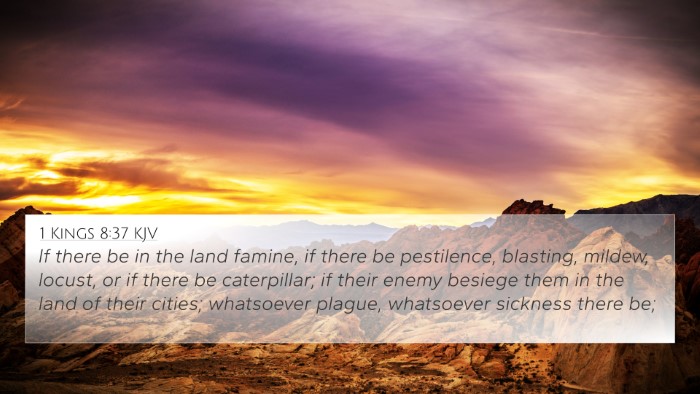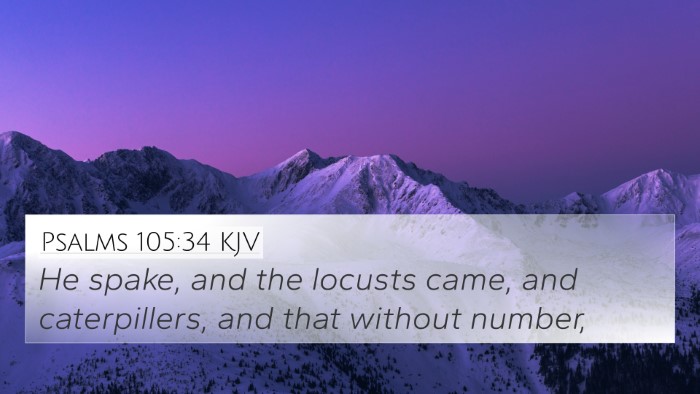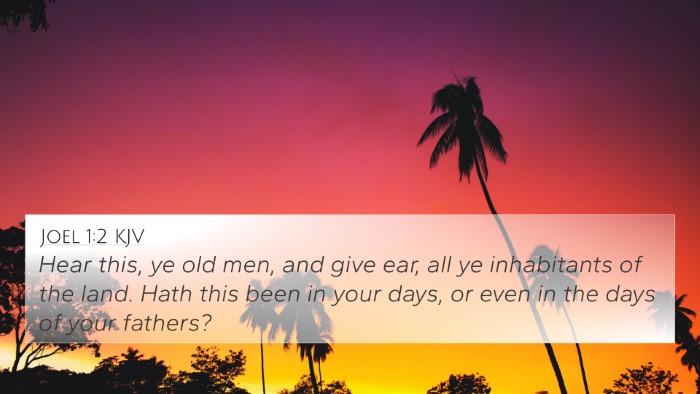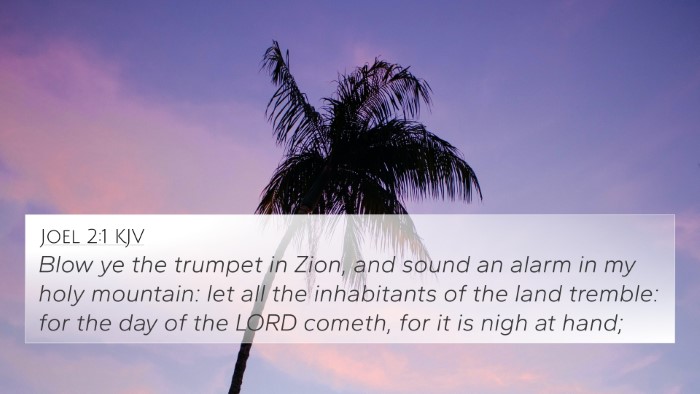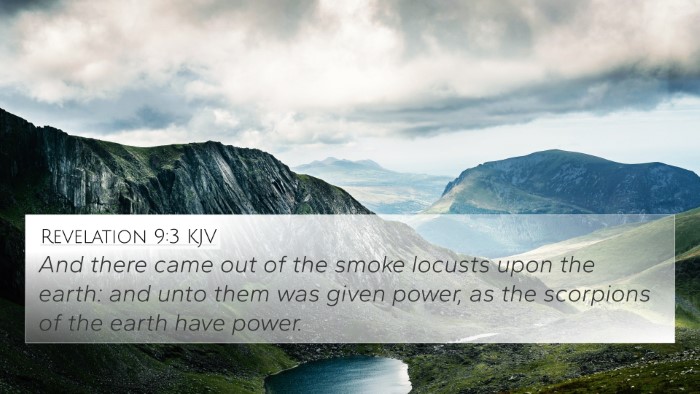Understanding Exodus 10:14
Exodus 10:14 states:
"And the locusts went up over all the land of Egypt, and rested in all the coasts of Egypt: very grievous were they; before them there were no such locusts as they, neither after them shall be such." (KJV)
Summary of Meaning
This verse describes the devastating plague of locusts that invaded Egypt as a punishment from God for Pharaoh's refusal to let the Israelites go. The imagery used in this passage emphasizes the severity of the locust invasion, portraying it as unprecedented and unparalleled in its destructiveness.
Commentary Insights
Matthew Henry's Commentary
In his commentary, Matthew Henry highlights that this plague serves as both a warning and as a manifestation of God's power. It showcases God's might as He brings about judgments upon those who defy Him. The locusts, likened to an army, strike fear into the hearts of the Egyptians, a point that emphasizes the futile power of Pharaoh in resisting divine will.
Albert Barnes' Notes on the Bible
Albert Barnes offers insight into the locusts as symbols of God's judgment, indicating that they came "over all the land of Egypt." He stresses the totality of the devastation, suggesting that the fullness of God's wrath is depicted here. Barnes also draws parallels between this event and future judgments in biblical prophecy, illustrating a continuity of themes regarding disobedience and divine retribution.
Adam Clarke's Commentary
Adam Clarke provides a more detailed examination of the locusts' characteristics, noting how their sheer numbers rendered them a terrifying force. He suggests that the text indicates a fulfillment of God’s promise to punish Egypt for its oppression of His people. Clarke further connects this plague to the themes of divine sovereignty and Egypt's inability to resist the will of God.
Bible Verse Cross-References
Exodus 10:14 connects with several important biblical themes and verses:
- Exodus 9:3-7 - Early plagues demonstrating God's power over Pharaoh.
- Joel 1:4 - A prophetic reference to locusts symbolizing divine judgment.
- Revelation 9:3-7 - The comparison of locusts to the judgments in the end times.
- Deuteronomy 28:38-42 - The curse of locusts for disobedience to God.
- Psalms 105:34-35 - A historical recounting of God's plagues on Egypt.
- Matthew 3:7 - John the Baptist warns of the judgment to come, drawing a connection with locust imagery.
- Luke 16:1-12 - The theme of vigilance and accountability in light of God’s authority.
Connections Between Bible Verses
The thematic connections within scripture are essential for understanding the overarching messages God communicates through His Word. Here’s how Exodus 10:14 can be linked to broader themes:
- Judgment - Seen in both Exodus and prophetic books like Amos.
- God's Sovereignty - A similar theme in the accounts of Daniel and Esther.
- The Power of Prayer - As demonstrated in the book of James (James 5:16).
- Deliverance - Theme prevalent in both Exodus and the New Testament in Romans 8:1.
Tools for Bible Cross-Referencing
For those studying the Bible, several tools can aid in cross-referencing verses:
- Bible Concordance - A reference tool to find where specific words appear.
- Bible Cross-Reference Guide - Helps in finding related verses based on themes.
- Bible Chain Reference - A method of linking verses thematically.
Inter-Biblical Dialogue
The interactions between books such as Exodus and the prophetic literature provide deep insight into continuity within God's narrative. The principle of linking scriptures enriches our understanding:
- Identifying connections between Old and New Testament, showcasing God's unfolding plan.
- Cross-referencing themes like judgment and deliverance enhance theological literacy.
- Comparative studies between narratives can reveal deeper truths about God's nature.
Conclusion
In conclusion, Exodus 10:14 serves not only as a historical account of God's judgment upon Egypt but also as a profound illustration of His sovereignty and the seriousness of sin. By engaging in comparative Bible verse analysis and utilizing cross-references, believers can deepen their understanding of Scripture and the interconnectedness of God's message throughout history.
